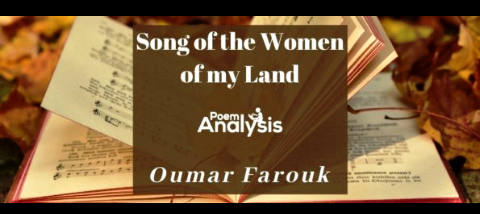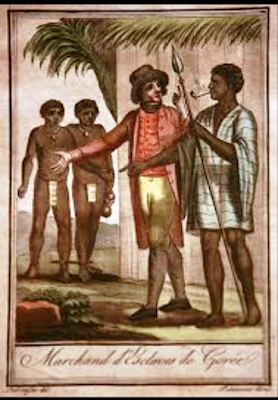The Song of the Women of My Land By Oumar Farouk Sesay
-Oumar Farouk Sesay
Like a sculptor chipping away at bits of wood
Time chisels away bits of their memory
It strips away Lyrics of the song of the women of my land
Leaving only a fading tune echoing the song
They sang in the forlorn fields
About their lives; songs
Of how they ploughed the terrain of their
For memories of Lyrics lost in the vast void of time
In those days when a song beheld their lives:
When servitude cuffed the ankles of their souls,
And dereliction decapitated the epic of their lives.
With a song, they sponged off their anguish,
To behold their collective pains,
To celebrate their gains,
Give Lyrics to the tune of their lives,
Cheat the tyrant of time,
And commune with yet unborn
To give meaning to an epoch lost of antiquity,
Yet time strips the Lyrics and scars the tune,
Leaving a dying song
Dead!
Like the women who died long ago,
Leaving the song to tell the story of their lives
Today the tune roams the forlorn fields
Like their souls looking for
A brief biography of the poet
Content Analysis/subject matter
Women are said to have experienced untold trauma and hardship during this time, and the persona laments bitterly about their problem. The memory of the condition of those women drives the persona crazy. The poem is written in a feminist point of view, exploring the problem of social inequality among women. This poem both addresses conditions of women during decade old civil war and the Atlantic slave trade and their unforgettable memories.
In stanza one and two, line 1-4, the persona
begins with a tone of lamentation, as he compares just the way an art work is
cut down, “into pieces”, of wood to
the way time has eroded the memory of the women in Sierra Leone, for the
citizens have forgotten so soon. “It
strips away Lyrics of the song of the women of my land/leaving only a fading
time echoing the song”. This implies
that time has made people to forget the trauma experienced by these women and
they barely remember.
In stanza three, line 5-11, the persona
himself personally remembers their suffering during the time of slave trade,
and how the women captured sing in “forlorn
fields/ about their lives” as they work in the plantation farm. The song they sing is a song of sorrow,
anguish and suffering, “While servitude cuffed the ankles of their souls and
dereliction decapitated the epoch of their lives”. This also means those women
who refuse to cooperate with the slave masters are cut down and their lives
come to nothing.
In stanza four, lines 12-18, the poet makes us understand that those women sing song of sorrow in the field of hopelessness to cast off their anguish “to behold their collective pain and “to celebrate their gains”. In doing so, their current condition will not have any enormous effect on them but rather it will reduce it, that is, “cheat the tyranny of time/and commune with yet unborn/to give meaning to an epoch lost of antiquity”. Here the persona submits that the only way to keep the ugly experiences of the women alive in the land, and not forget them is to communicate it to the unborn children to add more meaning to their lost battle in the past.
In the last stanza, line 19-23, the persona
also complains and laments that time has caused us to forget their pains and
suffering and the scar or the injury they suffered while trying to resist their
captors, thereby “leaving a dying song”. The “song” in the poem which represents the
memory is said to be “dead/like the women
who died in the process while struggling to survive’, “leaving the song to tell
the story of their lives”.
In conclusion, the poet leaves us with
sorrowful mood when he says in the last two line that their cry for lives that
were cut short are roaming the land of hopelessness “like their souls looking
for Lyrics”. This could also mean
revenge for what colonialism and slave trade have done to Africa.
However, the persona captures the suffering,
and trauma those women experienced in form of ageing art work that is useless
and valueless that will soon be eroded from the mother earth. Hence “like
a sculptor chipping away at bit of wood time chisels away bits of their
memory”. The Citizens have suddenly
forgotten their suffering and they have failed to acknowledge their pains and
inhuman humiliation done to them by the slave masters. We refuse “to
behold their collective pain/to celebrate their gains”. This means they laid down their lives to even
generation yet unborn to gain freedom.
Anguish and Traumatic Experience
Those women did not just suffer from daily humiliation but some of them lost their lives in the struggle. Hence “Dead/like the women who died long ago/leaving the song to tell the story of their song. “Even the Sierra Leone citizens seem to forget the women’s imparts as “yet time strips the Iyric and scars the tune, leaving a dying song”. This implies that what is left about their lives and existence is the scars and the bitter tale about them, how they plough the slave driver’s plantation farms, singing painful and hopeless song in the field,, and “to day the tune roams the forlorn fields like their souls looking for Iyrics.”
Suffering and Loss of human dignity
Poetic Device
1.
Simile: Line 1:
“like a sculptor chipping away at bit of wood”. Line 22: “like the women who died long ago” Line
25: “like their souls looking for Iyrics”Here
the persons compares the conditions of those women to different things.
Line 11: “and dereliction decapitated”.
Line 12: “with a song, they sponged off…”
Line 16: “cheat the tyranny of time:
Line
16: “The tyranny of time
Line
19: “Strips the
Line
16: “cheat the tyranny of time
Line
20: “leaving a dying song”
Line
23: “Leaving the song to tell the story of their lives”
Line
24: “Today the tune roams the forlorn fields” This
personification attempts to give human attributes to non-human objects so as to
make them act or behave like humans.
Line 2:
“Time chisels away bits of their
memory”. Line 17: “And commune with
yet unborn”. Here time is said to
possess the ability to cut memory, and also communicate with the unborn
children.
Line
13-`4 “To behold their collective pain” To celebrate their gains”
Line
15-16: “Give Lyrics to the tune of their lives” “Cheat tyranny of Lime”
Line
24-25: “Today the tune roams the forlorn field”
Like
their souls looking for Lyrics”
7.
Repetition:
“There is a repetition of few words or lines for the sake of emphasis in
the poem. “Song” “lives”, “time” for instance, are
repeated frequently, “forlorn field”
also is repeated in line 5 and 24
Meaning in line 23: “leaving the song to tell the story of their
lives”.
the title.
(a) “The song” in the title is a
metaphor for act of adulation, appreciation for the heroic experience of the
women in Sierra Leone. It is the song of
pains and anguish and even suffering.
The songs also help the women to calm their pains.
(b) “They
sang in forlorn fields” is a metaphor for hopelessness and helplessness.
“The song” in line 12 is a
metaphor for endurance and acceptances of daily
humiliation.
(c)
“Cheat the tyranny of time” is a metaphor for the need to resist the
violent act done to the women as their freedom of movement has also been denied
of them.
(d) “Like
a sculptor chipping away” is a metaphor for forgetfulness. It implies that we have completely forgotten
the memories of those women. The persona also buttresses this point in the last
two lines of the poem; He says.” Today the tune roams the forlorn fields like
their souls looking for Lyrics.
10. Symbolism/Imagery: The presentation of mental images to express a central idea is seen in the poem. From the title of the poem, readers are prone to create a mental picture as they read through the poem. The “song” in the title of the poem is symbolic of the ugly experience of the women in the land. There is auditory image in line 5-7, 12-15 as the person hears their song of anguish and pain as they toil along on the plantation farm. Even the last two lines re-echo this as their tone move to and fro searching for freedom.
LIKELY
WAEC/NECO EXAMINATION QUESTIONS
1.
Discuss how “The Song of the Women of my
Land” by Oumar Farouk Sesay echo the travails and anguish experienced by Sierra
Leone women
2.
Give a detailed account of the poem “The Song
of the Women of my Land”
3.
Examine the theme of loss of human dignity
and suffering in the poem.
4.
Assess the use of metaphor and
personification in the poem.
5.
Discuss any four (4) poetic devices in the
poem
6.
“When servitude cuffed the ankles of their
souls”, Explain fully what the
Poet meant by the above line.
7.
“The poem explores the condition of Sierra
Leonean women”. Discuss
8.
Examine the language and structure of the
poem.
9.
Discuss any two (2) major themes in the poem.
10.
Discuss the tone or the attitude of the persona
towards the subject matter in the poem.






Comments
Post a Comment
Comment from message gained, lessons learned, and suggestions to improve this blog.